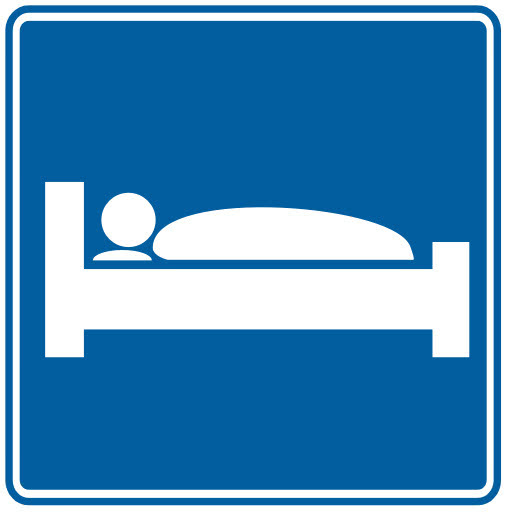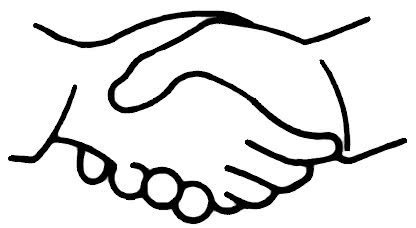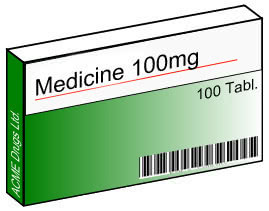Beijing is coming to the assistance of its solar energy manufacturers, now suffering through a major downturn due to a sudden cool-down in global sales. In one of two significant developments, the Chinese media are reporting that Beijing will give as much as $100 million to build new solar power plants in Africa, providing sorely needed sales for its domestic manufacturers that now supply more than half the world’s solar cells. (English article) On the same day that news appeared, debt-laden LDK Solar (NYSE: LDK) also announced it has just obtained $240 million in much-needed funding by selling a stake in its polysilicon business to a group led by two Chinese state-controlled banks, China Development Bank and China Construction Bank (HKEx: 939; Shanghai: 601939). These two developments come just a week after another player, Yingli Green Energy (NYSE: YGE) announced it had received a $180 million loan from another group of state-controlled banks. (previous post) This kind of support from Beijing is  critical for its solar players, who have seen prices and margins drop sharply in recent weeks amid one of the industry’s most rapid downturns as many Western markets faze out incentives to install new solar plants that were introduced at the height of the global financial crisis. To pick up some of the slack, China is also quietly working on a plan to significantly boost incentives at home to build more solar power plants. (previous post) Look for more of this kind of support in the months ahead, as Beijing tries to keep this carefully nurtured but currently struggling sector from sliding into crisis.
critical for its solar players, who have seen prices and margins drop sharply in recent weeks amid one of the industry’s most rapid downturns as many Western markets faze out incentives to install new solar plants that were introduced at the height of the global financial crisis. To pick up some of the slack, China is also quietly working on a plan to significantly boost incentives at home to build more solar power plants. (previous post) Look for more of this kind of support in the months ahead, as Beijing tries to keep this carefully nurtured but currently struggling sector from sliding into crisis.
Bottom line: Look for a steady stream of lifelines from Beijing to its struggling solar sector in the months ahead, including new financing and building of new power plants.
因全球行业销售骤减,中国太阳能产品制造商受到重创,中国政府如今正向他们伸出援手。其中的一个重大举措是,据中国媒体报导,中国政府将提供1亿美元,在非洲建设新的太阳能电厂,为国内太阳能电池制造商开拓市场。这个新闻出来的同一天,负债累累的江西赛维LDK太阳能<LDK.N>也宣布,公司刚刚通过向国家开发银行和中国建设银行<0939.HK><601939.SS>牵头的财团售出其多晶硅业务的部分股权,筹得 2.4亿美元的急需资金。而一周前,英利绿色能源<YGE.N>宣布从另一批国有银行那里获得了1.8亿美元贷款。对於近几周来受国际市场环境恶化影响,产品售价和利润都大幅下跌的中国太阳能厂商来说,北京的这次支持可谓一场及时雨。中国政府还默默地在国内推行一项激励计划,以大大鼓励国内建设太阳能电厂。预计中国政府在未来几个月还会出台更多类似扶助措施,以免这块小心培育但现况不佳的行业滑入危机。
一句话:预计中国政府未来几个月会持续推出扶助太阳能产业的举措,包括提供新融资和建设新电厂。
Related postings 相关文章:
◙ China Comes to Rescue With Yingli Loan 英利获贷款承诺 政府终出手相助
◙ Italian Cloud Casts Shadow on Solar Sector, Pressures Beijing 意大利阴云笼罩中国太阳能产业

 This new lawsuit could prove potentially damaging to Huawei if it goes forward, as the legal action aims at 4G — expected to be a major growth driver for both companies as telcos upgrade to next-generation LTE networks. What’s more, this lawsuit aims to put the brakes on a trial LTE network that Huawei is currently building for China Mobile (NYSE: CHL; HKEx: 941) in both companies’ headquarters city of Shenzhen. While this kind of back-and-forth lawsuits isn’t exactly helpful for business, it’s quite common in the West and thus it’s refreshing to see it happening in China where Beijing more often urges companies to try to live together in harmony. I’m guessing Beijing may still try to mediate this dispute, aiming to keep it from completely spinning out of control and potentially hobbling two of its biggest export superstars.
This new lawsuit could prove potentially damaging to Huawei if it goes forward, as the legal action aims at 4G — expected to be a major growth driver for both companies as telcos upgrade to next-generation LTE networks. What’s more, this lawsuit aims to put the brakes on a trial LTE network that Huawei is currently building for China Mobile (NYSE: CHL; HKEx: 941) in both companies’ headquarters city of Shenzhen. While this kind of back-and-forth lawsuits isn’t exactly helpful for business, it’s quite common in the West and thus it’s refreshing to see it happening in China where Beijing more often urges companies to try to live together in harmony. I’m guessing Beijing may still try to mediate this dispute, aiming to keep it from completely spinning out of control and potentially hobbling two of its biggest export superstars. The short lovefest between former archrivals Alibaba Group and eBay (Nasdaq: EBAY) has ended almost as quickly as it began, as the US online auctions giant gears up for another possible move into China’s blossoming e-commerce market. Many were surprised (or at least I was) last year when eBay CEO John Donahoe showed up as the guest of honor in Hangzhou at Alifest, Alibaba’s annual shindig where it talks about the latest tech trends. A few months before the event, the pair of former bitter rivals signaled their friendly approach when eBay’s PayPal online payments unit entered a tie-up with Alibaba’s AilExpress service. Now just a year after that partnership began, PayPal has quietly announced on its blog it is ending the tie-up. (
The short lovefest between former archrivals Alibaba Group and eBay (Nasdaq: EBAY) has ended almost as quickly as it began, as the US online auctions giant gears up for another possible move into China’s blossoming e-commerce market. Many were surprised (or at least I was) last year when eBay CEO John Donahoe showed up as the guest of honor in Hangzhou at Alifest, Alibaba’s annual shindig where it talks about the latest tech trends. A few months before the event, the pair of former bitter rivals signaled their friendly approach when eBay’s PayPal online payments unit entered a tie-up with Alibaba’s AilExpress service. Now just a year after that partnership began, PayPal has quietly announced on its blog it is ending the tie-up. ( I have to admit I was caught completely by surprise to read that Lenovo (HKEx: 992) parent Legend Holdings is considering a potential move into the hotel business. (
I have to admit I was caught completely by surprise to read that Lenovo (HKEx: 992) parent Legend Holdings is considering a potential move into the hotel business. ( After 2 months of silence following its latest spat with Beiijing, Google (Nasdaq: GOOG) has suddenly reappeared on the China map, and early signs look like the impasse may be moving towards a positive resolution. Chinese media are reporting that in what looks like a subtle shift, Beijing has determined that any foreign operator of an online mapping service in China must still have a Chinese partner, but it has “clarified” that such a local partner need not hold a majority stake in the venture. (
After 2 months of silence following its latest spat with Beiijing, Google (Nasdaq: GOOG) has suddenly reappeared on the China map, and early signs look like the impasse may be moving towards a positive resolution. Chinese media are reporting that in what looks like a subtle shift, Beijing has determined that any foreign operator of an online mapping service in China must still have a Chinese partner, but it has “clarified” that such a local partner need not hold a majority stake in the venture. ( as I don’t know many details about this partnership even though I’m quite familiar with the companies, which both have excellent reputations in their home markets. My quick take is that this divorce probably reflects an inability to work well together, as both companies certainly have strong ideas about running a restaurant, especially in China where the cost of a cup of coffee is quite pricey compared with local incomes. At the same time, Maxim’s has never really shown a huge interest in China for its own brands, unlike Starbucks which is building new stores like crazy and just last year announced a major commitment to support local coffee growing in Yunnan province, China’s only natural coffee growing region. So what’s it all mean and who comes out the winner? In this case it could be a win-win, as Maxim’s gets to pull out of a market for which it apparently has little taste and quickly recoup its investment. Starbucks, meantime, gets to take over its China show completely, with both its challenges and rewards. Starbucks has tasted success in China’s big cities, where its stores are usually packed with lounging young professionals relaxing over a cup of daily brew. But whether or not it can replicate that success in less affluent southern cities where its Maxim partnership were concentrated could be more challenging as it seeks out a suitable business mix for these areas.
as I don’t know many details about this partnership even though I’m quite familiar with the companies, which both have excellent reputations in their home markets. My quick take is that this divorce probably reflects an inability to work well together, as both companies certainly have strong ideas about running a restaurant, especially in China where the cost of a cup of coffee is quite pricey compared with local incomes. At the same time, Maxim’s has never really shown a huge interest in China for its own brands, unlike Starbucks which is building new stores like crazy and just last year announced a major commitment to support local coffee growing in Yunnan province, China’s only natural coffee growing region. So what’s it all mean and who comes out the winner? In this case it could be a win-win, as Maxim’s gets to pull out of a market for which it apparently has little taste and quickly recoup its investment. Starbucks, meantime, gets to take over its China show completely, with both its challenges and rewards. Starbucks has tasted success in China’s big cities, where its stores are usually packed with lounging young professionals relaxing over a cup of daily brew. But whether or not it can replicate that success in less affluent southern cities where its Maxim partnership were concentrated could be more challenging as it seeks out a suitable business mix for these areas. their own intellectual propertyl. I don’t know a lot about Hisun, but presumably Pfizer has done its homework and feels this is a partner it can work with. If that’s the case, this kind of pairing could be just what the doctor ordered for both sides, as Chinese health officials will undoubtedly be happy to give preferable treatment to drugs from a company with both a strong domestic Chinese partner and also one with the Pfizer seal of approval, guaranteeing the quality of its products.
their own intellectual propertyl. I don’t know a lot about Hisun, but presumably Pfizer has done its homework and feels this is a partner it can work with. If that’s the case, this kind of pairing could be just what the doctor ordered for both sides, as Chinese health officials will undoubtedly be happy to give preferable treatment to drugs from a company with both a strong domestic Chinese partner and also one with the Pfizer seal of approval, guaranteeing the quality of its products. After seeing its solar panel makers struggle for the better part of a year in one of their worst ever downturns, Beijing is finally stepping in to help this promising sector that has fallen on hard times. Yingli Green Energy (NYSE: YGE), one of the stronger players, has announced that it’s just received a 5-year, 1.2 billion yuan ($180 million) loan from two Chinese government-controlled banks, Bank of China and CITIC. (
After seeing its solar panel makers struggle for the better part of a year in one of their worst ever downturns, Beijing is finally stepping in to help this promising sector that has fallen on hard times. Yingli Green Energy (NYSE: YGE), one of the stronger players, has announced that it’s just received a 5-year, 1.2 billion yuan ($180 million) loan from two Chinese government-controlled banks, Bank of China and CITIC. (